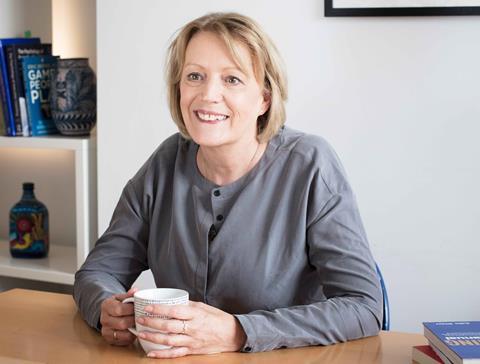As we look back on our year and prepare for the one ahead, Louise Rodgers explains how to shift from a closed-mind state to an open one with space for new thoughts and ideas

As we speed towards the end of another year, I am sensing more than the usual fatigue. Everyone seems to be trying to complete their 2021 to-do list and at the same time prepare for the festive period.
Given that it has been another extraordinary 12 months, this is not altogether surprising. We have become so accustomed to living with a certain amount of uncertainty, that the need to constantly adjust to changing circumstances has become subconscious, like standing on one leg in a yogic balance. This may have left us with even less time for reflection than normal.
I often draw coaching sessions gently to a close by asking my client to spend 10 minutes reflecting on their takeaways from the session and writing them down. Then we spend a few minutes talking them through before we say our goodbyes. This seems especially important just before Christmas, when you know that lots is going to happen between now and when you see them again.
Sometimes the reflections can be surprising and bear little relation to the things I think we have been discussing. I love it when that happens. It’s a reminder that coaching is a process of which the client’s internal dialogue is the most important part. My job is simply to hold the space, listen and ask the right questions. And hope that when the videocall camera is turned off, my clients will return to their busy schedules feeling a little calmer and perhaps with a slightly different perspective on something that’s been troubling them.
Spend time thinking about things that went well during this year. Consider how you contributed, and the strengths you have developed as a result
You don’t need to be a coach, or with a coach, to develop a habit of reflection. But understanding the difference between self-reflection and rumination can help stop what should be a positive and mindful activity from becoming an unhealthy one.
We all know the rumination trap. It’s when our mind gets stuck on the hamster wheel of negative thoughts and emotions and even our body can react with tense shoulders, shallow breathing and a churning stomach.
How do we shift out of rumination and into reflection? The first step is to be aware of what happens to your thoughts, emotions and body when you are ruminating on something. Only by recognising the signs can you begin the process of learning how to divert your mind to a more useful activity.
This means consciously practising new thoughts, of acceptance and curiosity (“It is what it is – how do I move on?”); self-compassion (“I made a mistake; everyone does that sometimes. What can I learn from it?”); and using your body to calm your mind and emotions, for example by altering your posture, deepening and slowing down the breath, and focusing on something outside yourself, such as the view from the window.
Inevitably, there were things that didn’t go so well. What did you learn from those? What are you going to leave behind, and what are you going to take into 2022?
Turning rumination to reflection is like moving from a closed-mind state, in which your capacity to think clearly is compromised, to an open one with space for new thoughts, ideas or inspiration to come in.
So as the year draws to a close and a well-earned rest is on the horizon, do yourself a favour and plan for some reflection as well as relaxation over the next few weeks. Spend time thinking about things that went well during this year, instead of dwelling on the things that didn’t go so well. Consider how you contributed to making those things go well, and the skills and strengths you have developed as a result. Inevitably, there were things that didn’t go so well. What did you learn from those? What are you going to leave behind, and what are you going to take into 2022?
Finally, what is your big project for next year, and what are your priorities? Doing some forward reflection and having a clearer idea of those plans and priorities before you get back to your desk in the new year may really impact on how you approach those critical first few weeks.
Postscript
Louise Rodgers is Building Design’s professional coach. A personal and business coach, she co-created and co-delivers Step Up, a leadership development programme for built environment consultants.
Do you have a question for Louise? If so email louise@eidyia.co.uk. She will use the most interesting in her columns but cannot enter into individual correspondence.
















No comments yet